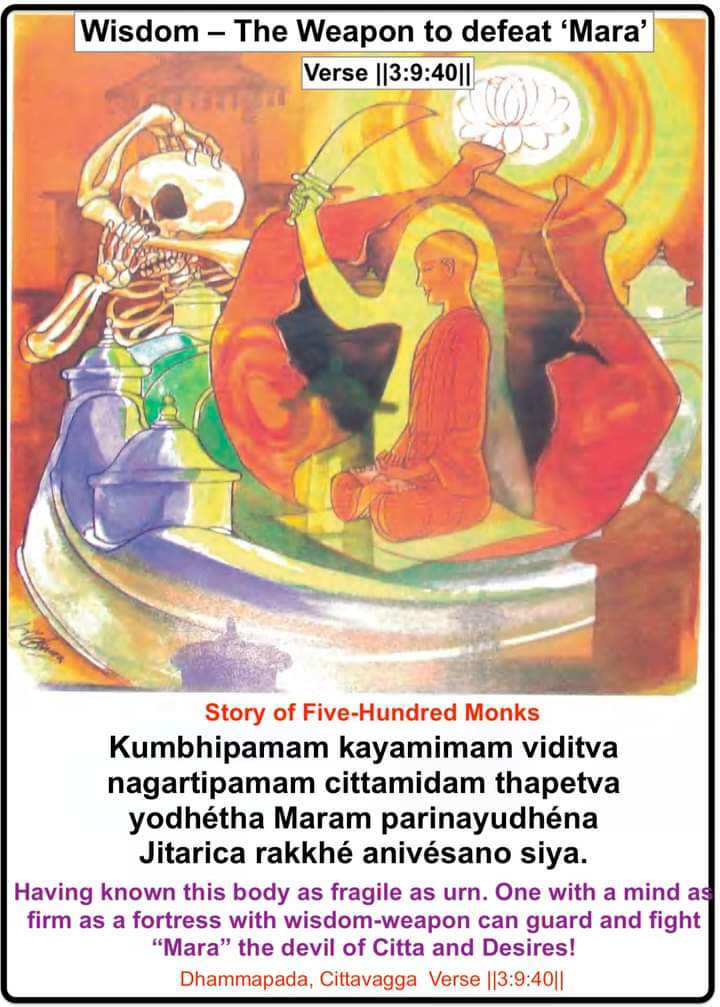Who will be able to conquer the earth, gods, and Yama loka? The story of the gardener who made garlands of flowers and the five hundred monks, Part-1 (Verse 4.1:44) Place: Jetvana monastery (The Buddha spoke these verses, with reference to five hundred monks.) Once, five hundred monks returned to the Jétavana Monastery, after visiting a village with the Buddha. In the evening, while the monks were gossiping about their trip, and the condition of the land, whether it was level or hilly, or whether the ground was of clay or sand, red or black, the Buddha came to them. Knowing the subject of their talk, the Buddha said to all the monks –“ dear monks, the earth you are gossiping about is an external object to the body; it is better, indeed, to examine your own body and mind and with meditation practice like an expert garland-maker will select, pluck and arrange flowers into garlands. Then, the Buddha asked a question – "In the same way, who will examine (penetratingly) th...






















